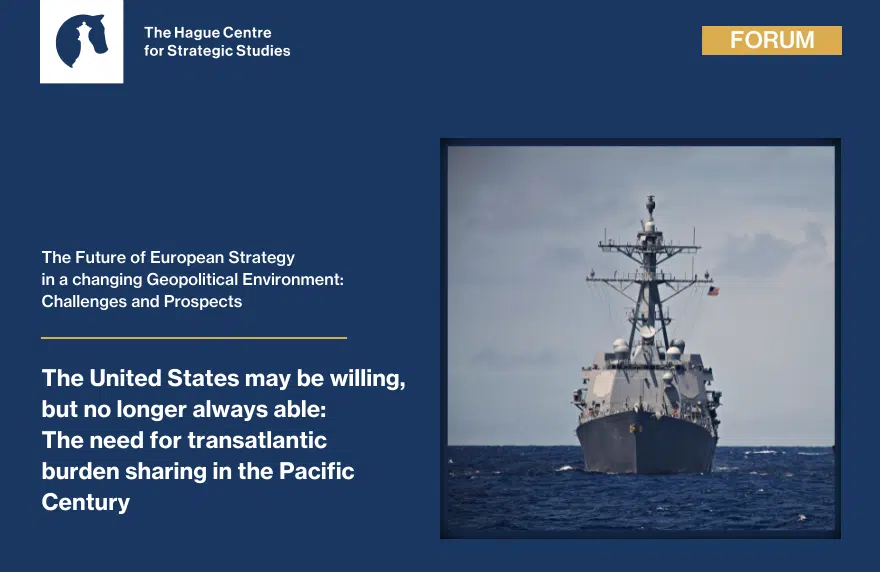New HCSS report highlights decline in U.S. commitment to European security. Major shift in Transatlantic Relations could impact NATO, EU, and European defence policy.
A new report released today by the Hague Centre for Strategic Studies (HCSS) underscores the growing decline in U.S. commitment to European security, signalling a potential shift in the long-standing transatlantic relationship. The report explores how structural changes in the global order and domestic political shifts in the U.S. are increasingly deprioritizing Europe in American foreign policy, with profound implications for NATO, the European Union, and the broader European defence strategy.
Titled Twilight of Atlanticism, the report by strategic analysts Davis Ellison and Paul van Hooft outlines how the U.S. is facing new and competing global priorities, particularly in relation to the rise of China and its impact on American foreign policy. As the U.S. government seeks to manage its resources across multiple fronts—Europe, Asia, and the Middle East—American leaders are signalling a reduced focus on European security. This shift is not limited to the current Biden administration but is part of a broader, long-term trend of changing priorities that may affect Europe’s reliance on U.S. defence guarantees.
Key findings from the report:
- Declining U.S. focus on Europe: The U.S. is gradually deprioritizing Europe in favour of addressing challenges in Asia, particularly the rising geopolitical power of China. Despite ongoing support for Ukraine amid Russia’s invasion, U.S. foreign policy is increasingly focused on the Indo-Pacific, with resources stretched thin and political will weakening to maintain the same level of commitment to European defence.
- Shifting political dynamics in the U.S.: Domestic shifts in U.S. politics are also playing a significant role. Growing political polarization and the changing demographics of American society have led to a reduced focus on Europe. The next generation of U.S. leaders, shaped by events like the Iraq and Afghanistan wars, the 2008 financial crisis, and the rise of populism, is far less inclined toward traditional transatlanticism.
- The end of the “Atlanticist Consensus”: The era of European-friendly, Europhile American policymakers is coming to an end. Increasingly, American elites and the public view Europe as wealthy enough to provide for its own security, with some even questioning the fairness of the U.S. subsidizing European defence through NATO.
- Implications for European security: If these trends continue, European nations may be forced to take greater responsibility for their own defence. The likely consequences include an intensification of defence spending, a re-evaluation of the EU’s defence capabilities, and a potential shift away from reliance on U.S. nuclear deterrence. Europe’s role in NATO and other security frameworks may also need to be recalibrated in response to changing U.S. priorities.
- Potential scenarios for the future: The report provides an in-depth analysis of four key American foreign policy approaches—liberal internationalists, prioritisers, restrainers, and the “America First” national-populists—highlighting how these varying perspectives could further shape the future of U.S.-Europe relations. It also examines how the outcome of the 2024 U.S. presidential election may impact this evolving landscape.
Conclusion: a call for European self-reliance in security
This new HCSS report concludes that the days of relying on the U.S. as the primary guarantor of European security may be coming to an end. The transatlantic partnership will not disappear overnight, but significant changes are underway. Europe must prepare for a future where it will play a much larger role in its own defence and security affairs.

Authors: Davis Ellison and Paul van Hooft
With contributions from Julia Döll and Giulio Damiani
The research for and production of this report has been conducted within the PROGRESS research framework agreement. Responsibility for the contents and for the opinions expressed, rests solely with the authors and does not constitute, nor should be construed as, an endorsement by the Netherlands Ministries of Foreign Affairs and Defence








